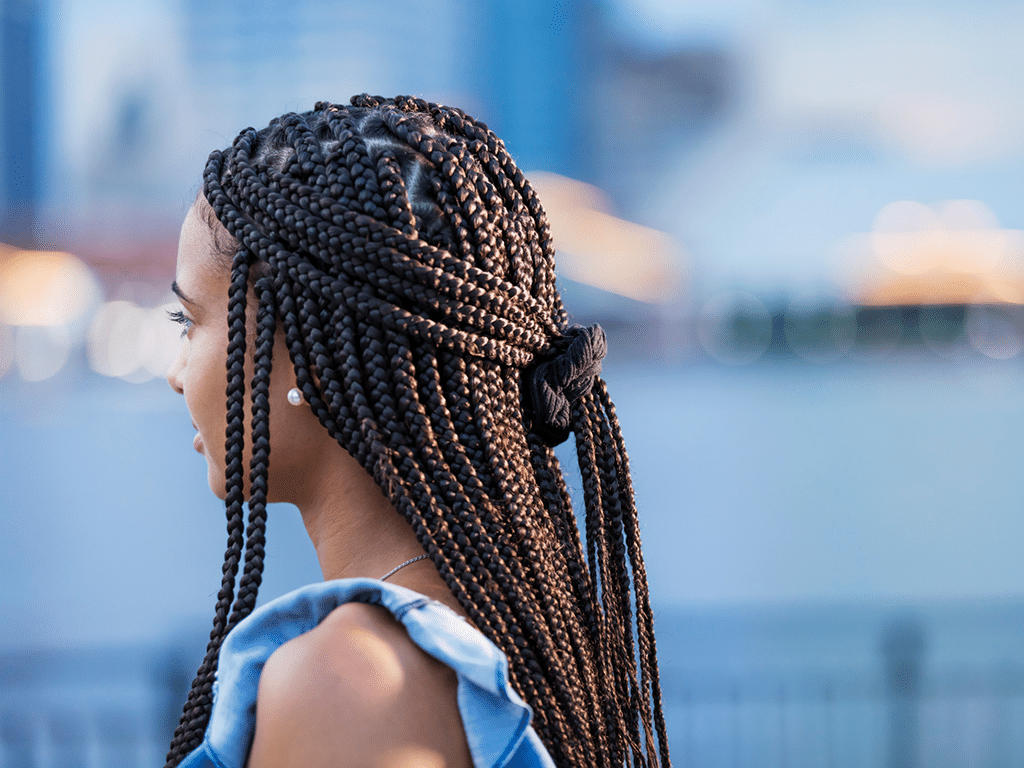
Since the dawn of the Kardashians, it’s become “trendy” for white women to sport Afrocentric hairstyles for financial gain.
Though they certainly weren’t the first to abuse this right, the famous family was very influential in normalising white women wearing these hairstyles, empowering an entire generation of social media ‘influencers’ to wear cornrows, locs, box braids, and twists to achieve an aesthetic that does not belong to them.
For years, the cries of cultural appropriation have been drowned out by Instagram likes and climbing follower counts from other white women who lack a deep understanding of the cultural importance Black hairstyles hold and why it’s absolutely not okay to wear them.
Author Dr. Cheryl Thompson, who explores the connection between Black beauty, politics and culture, detailed the history of Black hair in an essay for the University of Michigan. “For young black girls, hair is not just something to play with,” she writes in her piece titled Black Women and Identity: What’s hair got to do with it?. “It is something that is laden with messages, and it has the power to dictate how others treat you, and in turn, how you feel about yourself.”
The history of natural Black hair is long and complex. Thompson cites that Black hairstyles were used in Africa to communicate one’s status in society (including age, marital status, wealth, and other rankings) since as early as the 15th century.
“Once enslaved, hair became more a matter of the labour one was forced to do,” she pens. “For instance, field slaves often hid their hair, whereas house slaves had to wear wigs similar to their slave owners, who also adorned wigs during this period.”
It was during this period that Western civilisation weaponised Black hair, transforming Black hairstyles from a symbol of power to a means of survival.
Ashleigh Williams, Qualitative Research Director for C+R Research, explains this shift in her article, The Connection Between Hair and Identity in Black Culture, writing that while enslaved “hair wraps were used as a sign of oppression/social status and a means for Black women to make themselves less attractive to their owners.” Once Black women entered the industrial workforce, conforming to Eurocentric standards of beauty became necessary to get hired.
This discrimination is still very present for Black women in corporate America. Williams notes that in 2016, a federal appeals court ruled that refusing to hire someone with locs is not racial discrimination. The case was filed by the Equal Employment Opportunity Commission against a company that would not hire a woman because she refused to cut off her locs.
This dichotomy between the cultural significance of Afrocentric hairstyles and its painful history as it relates to the Western world has created a very complex relationship for Black women and their hair. “One important implication of such debates is that Black women’s hairstyle choices are seldom just about aesthetics or personal choice,” Lanita Jacobs Huey, Ph.D. Linguistic Anthropology, explains her in book From the Kitchen to the Parlor: Language and Becoming in African American Women’s Hair Care. “But are instead ever complicated by such issues as mate desire, mainstream standards of beauty, workplace standards of presentation, and ethnic/culture pride.”
And therein lies the answer to why white women can’t wear Black hairstyles.
For white women, these hairstyles are a personal choice rooted in vanity that can be easily removed or washed away, just like a beachy wave or a high ponytail. There is immense privilege in choosing to wear Black hairstyles when it suits one’s aesthetic, while also having the ability to opt-out of the prejudice associated with these hairstyles in instances when this aesthetic is not deemed acceptable.
White women can shield themselves from the negative ramifications and biases surrounding Black hairstyles while reaping the rewards, whether financially or otherwise.
Black women are not granted this privilege and have thus endured a painful history of attempting to dismantle and erase their personal and cultural identity associated with their natural hair.
For more information, find resources below:
Beauty as violence: ‘beautiful’ hair and the cultural violence of identity erasure by Toks Oyedemi
Centering Perspectives on Black Women, Hair Politics, and Physical Activity by H. Shellae Versey
Hair as Race: Why “Good Hair” May Be Bad for Black Females by Cynthia L. Robinson
Reclaiming Our Roots: The Influences of Media Curriculum on the Natural Hair Movement by Rhonda Baynes Jeffries and Devair Jeffries
Decolonizing my hair, unshackling my curls: an autoethnography on what makes my natural hair journey a Black feminist statement by Carolette R. Norwood


